
Kingdom of the Planet of the Apes takes the DNA of the previous films to build something new, while leaving you wanting so much more.
Kingdom of the Planet of the Apes
Directed By: Wes Ball
Written By: Josh Friedman
Starring: Owen Teague, Freya Allan, Kevin Durand, Peter Macon
Release Date: May 10, 2024
Kingdom of the Planet of the Apes comes on the heels of one of the most impressive modern Sci-Fi trilogies around. Tasked with not only continuing on from Caesar’s legacy, it has to build upon it with all new characters and story. Thankfully, director Wes Ball and team have succeeded in doing exactly that. While there are some minor quibbles, it’s an epic outing with a gorgeously crafted world you’ll want to spend more time in. Let’s break it down a bit…
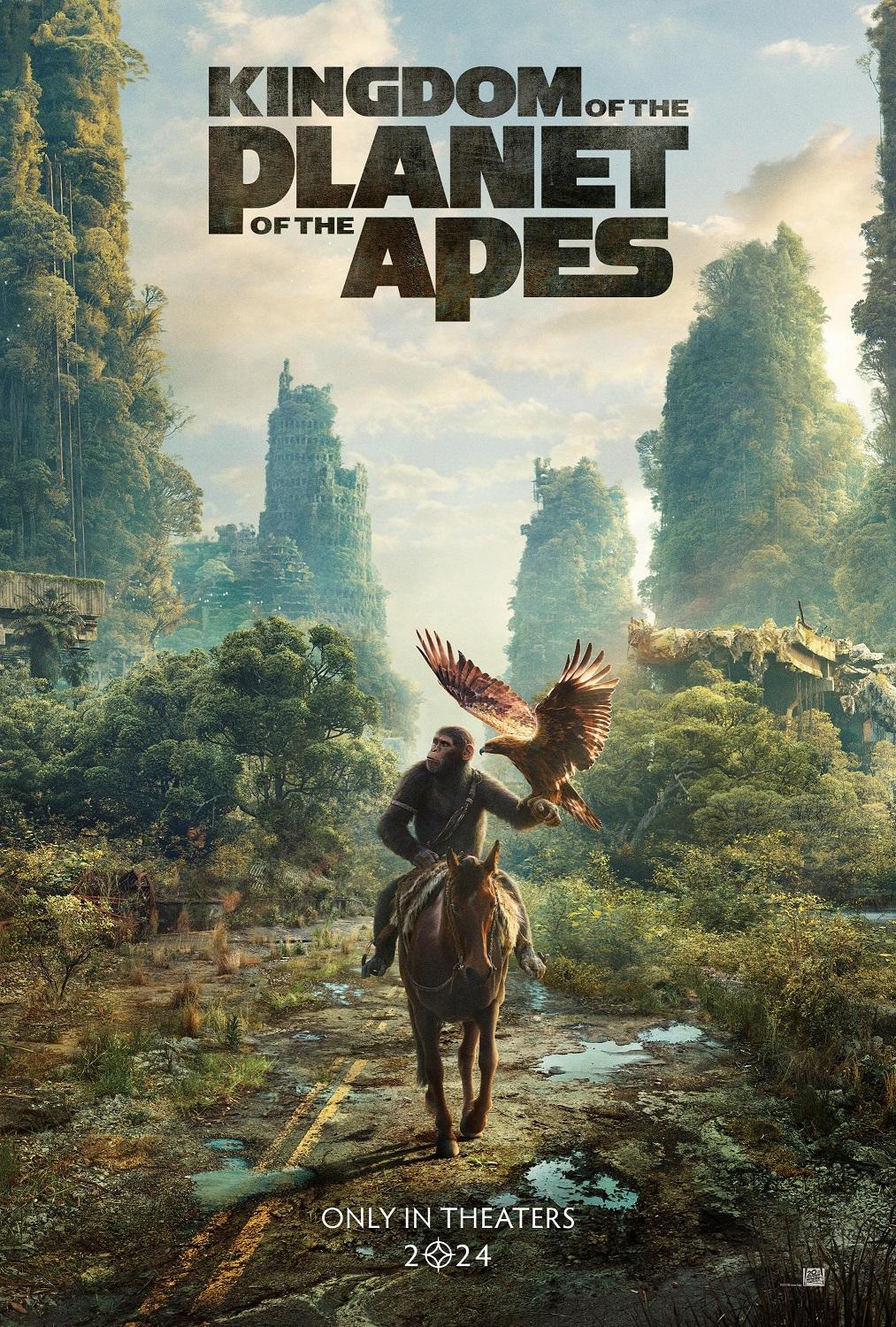
Story Basics
Set a few hundred years following the events of the previous film, War for the Planet of the Apes, Kingdom thrusts audiences into the heart of something all new. The world is a drastically different place, seemingly more in line with the status quo of the original Apes films. Apes are the dominant species, with numerous villages/clans with their own customs while humans are largely feral/animalistic.
Here we meet Noa (Owen Teague), a young chimpanzee who’s part of the Eagle Clan along with his childhood friends, Soona (Lydia Peckham) and Anaya (Travis Jeffery). They live peacefully along with many others, with much of their culture centered on, as the name implies, rearing eagles. As is likely the intent, the imagery of such falconry immediately brings to mind medieval times; which gives audiences a general idea of how the Apes in general have developed over the intervening years.

Noa’s simple life, as he worries about impressing his father and succeeding at an upcoming rite of passage, is quickly upended when the war-like apes under Proximus Caesar (Kevin Durand) raid their village. Ostensibly searching for a specific human (the reasons for which become clear later on), they take the opportunity to capture the Eagle clan; killing those who get in their way.
Left for dead, Noa embarks on a journey to find his lost people and bring them home. Along the way he meets up with Raka (Peter Macon), an orangutan who adheres to the ancient teachings of Caesar; and Nova, a young human who is more than she seems. As both Noa and Nova find what they’re looking for, they must contend with ancient rivalries and new threats in order to survive Proximus’ sinister plans…
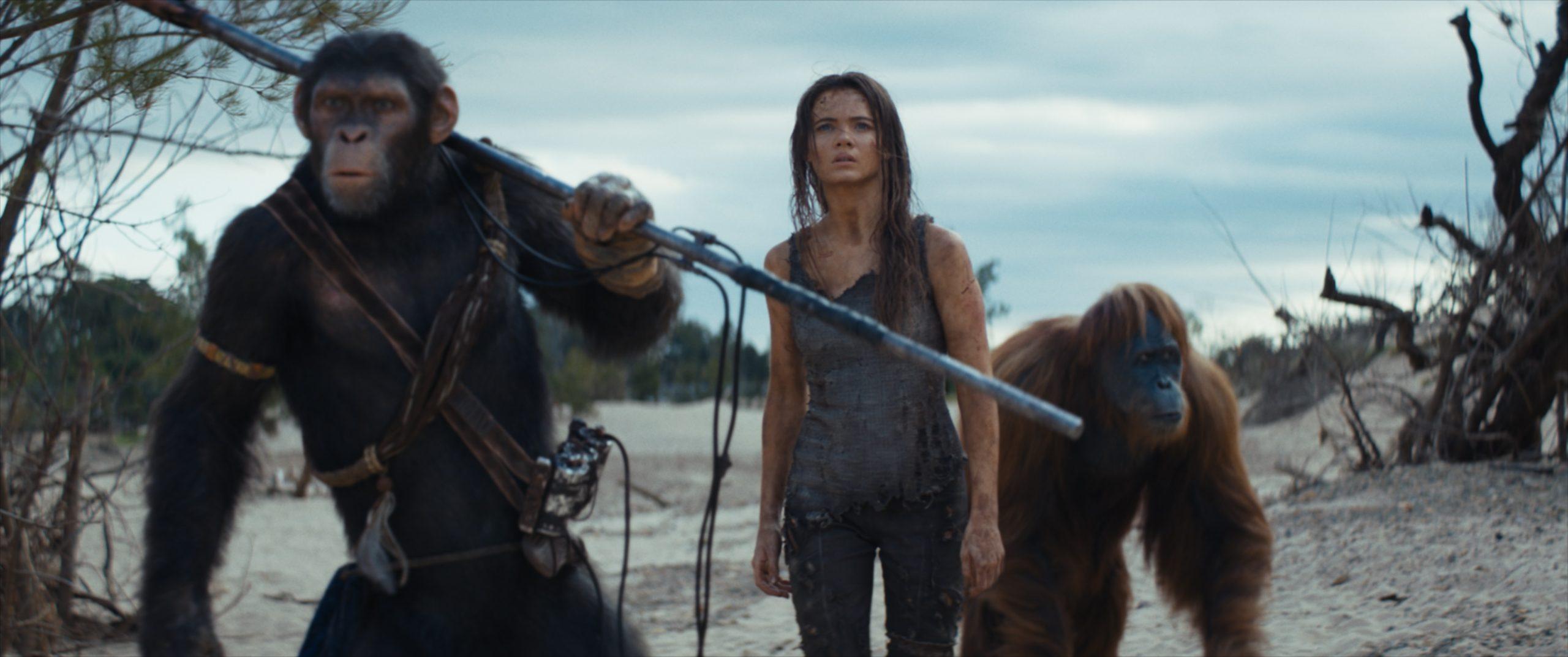
Yes, I’m keeping things purposefully vague despite the film already being out in theaters. While I don’t think there’s any huge “surprises” in the film, there are plenty of moments that are definitely better experienced than described.
Overall, I really enjoyed the story it told. In a lot of ways, it feels like a fairly typical “hero’s journey” type fantasy tale. Instead of humans, however, it is apes who are taking on all the primary roles and serve as the driving force in the story. It’s a twist the other Ape movies have played on, but so much of the previous trilogy was about them gaining freedom/dominance, while Kingdom doesn’t need to go into any of that.
It sounds like a subtle difference, but it’s enough to make all the story beats feel fresh, even as it hits on familiar tropes. A big part of why it works so well, has to do with the time period/setting it establishes.
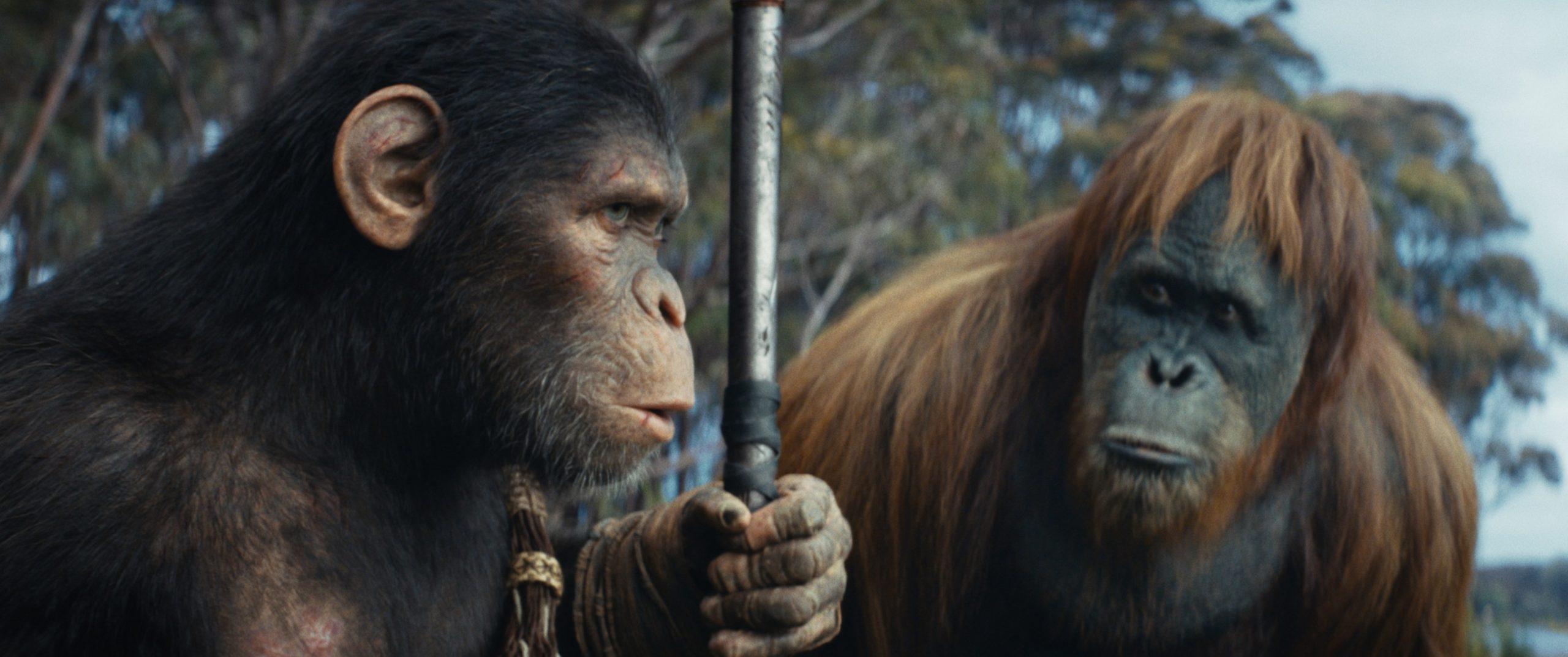
Jumping Ahead
As I mentioned, Kingdom of the Planet of the Apes takes place a few hundred years after the events of War. Caesar has become more of a mythic figure, with his exploits used in a way almost akin to religion. One in which others are already beginning to veer from and use to their own devices. Humans themselves are seen as little more than a nuisance at this point, pests who interfere with harvests and such.
The world itself is vastly different as well, with nature fully reclaiming the human cities. Think post-apocalyptic, but not the frightening kind. The kind where it’s been long enough for beauty to settle back in be more awe-inspiring. Setting the story in this time period has two noticeable effects.
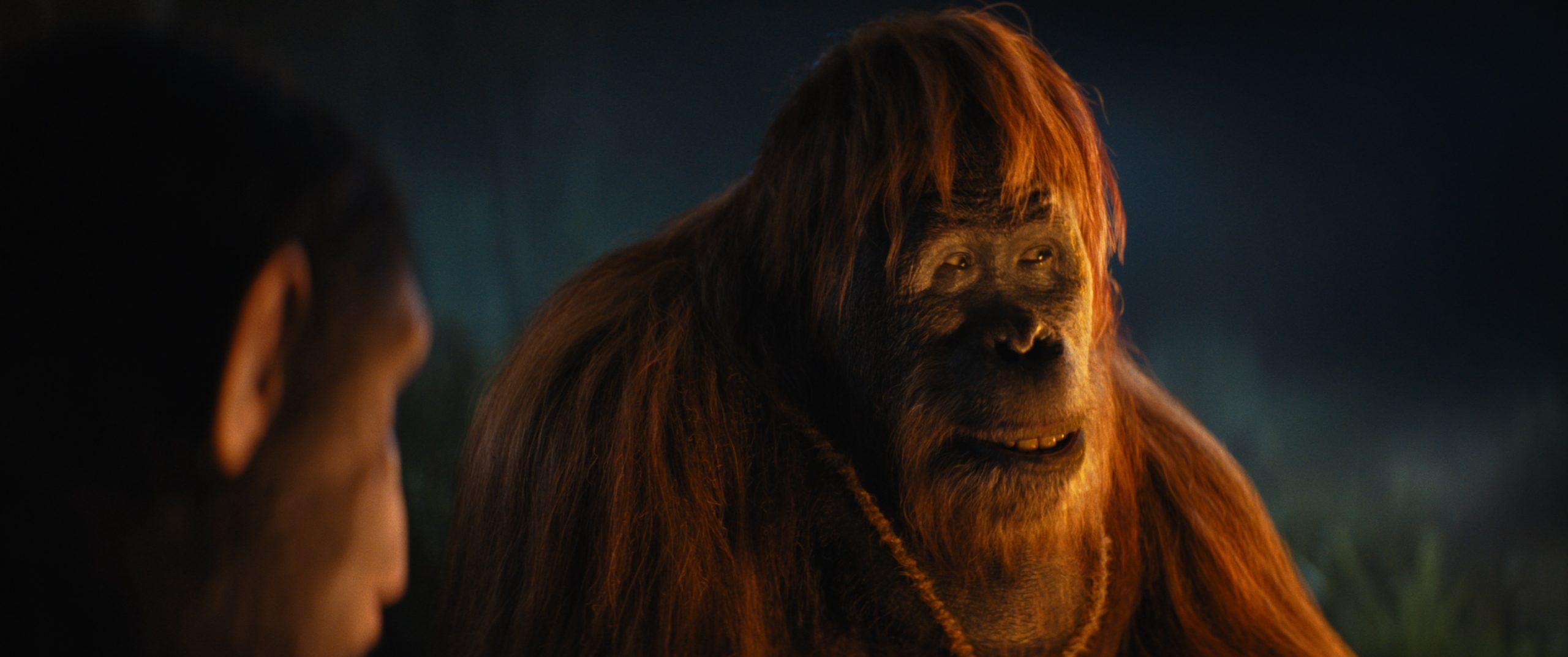
For one, it ensures anyone watching can enjoy it for what it is as there aren’t any direct plot connections to the previous films. Newcomers to the franchise can use it as a starting point without feeling the least bit lost. At the same time, there’s enough of the lore/legacy included to offer deeper connections for existing fans. It strikes an excellent balance, and one that only seems possible thanks to shifting the timeline by a few hundred years.
In fact, I found myself thinking at several points during, and after, that this is exactly what I’ve been wanting the Star Wars franchise to do for a while now (on screen). It’s a big reason I’m so excited for The Acolyte, as the new time period opens a world of new possibilities without feeling hemmed in by everything else.
Secondly, Kingdom uses this new world to captivate audiences, pulling them along even as the plot hits familiar beats. As others have mentioned in their reviews, Kingdom takes its time to “get going.” It’s definitely a slower burn for a number of parts, but the result makes the world feel real.

Much like Fellowship of the Ring and James Cameron’s Avatar films, Kingdom crafts an immersive, living world. You get the sense there could be a thousand different stories happening at the same time all across the globe, and we’re merely gazing into a singular one. The more I learned about how this world operates, the more I wanted to discover. To simply exist in what they’ve created and experience the stories waiting to be told.
This is probably where Kingdom succeeds more than anything else. Its world is instantly captivating, which connects you to the characters and overarching story in an endearing way. Which is great, because, as I mentioned, the plot is relatively straightforward, but the impact is no less for it, due to the expansive world they’ve created.
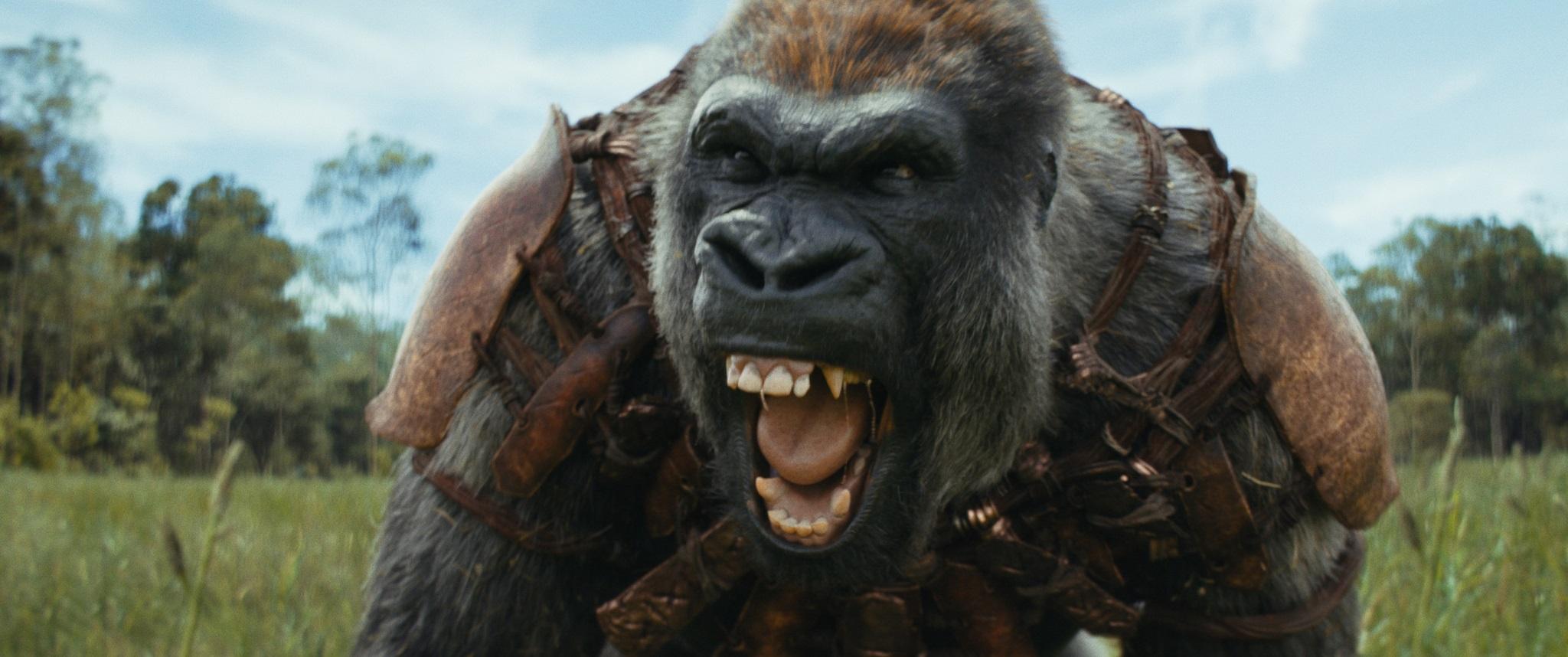
No Caesar
For both good and bad, Kingdom of the Planet of the Apes is very much an “opening” movie. Don’t get me wrong, it definitely tells a self-contained story. But much like The Lord of the Rings (I don’t use the analogy again lightly), it mostly feels like an intro to these characters. Getting them to the point they need to be for the EPIC story/adventure to come.
This leads to about the only major issue that seemingly holds the film back. The absence of Caesar is keenly felt in this film. This is not a knock against the new characters, or Noa specifically, who manage to feel as fleshed out and alive as their predecessor. Rather it’s the type of character Caesar brought to the table in the previous films.
For all intents and purposes, Caesar serves as the “chosen one” figure in the previous films. Even as he grants intelligence to others, and the apes begin to develop even beyond his community, he’s a savior figure. A guiding light in both ability and morality. As he endured his own tribulations and crisis of faith, he was still an imposing force. Almost more ideal than mortal.
Kingdom…just doesn’t have that factor. Noa’s great, and I can certainly see him taking on that role in further films. He’s just not there in this one. Obviously, that doesn’t change the fact the film is still phenomenal, there’s just a certain “oomph” that’s lacking throughout.
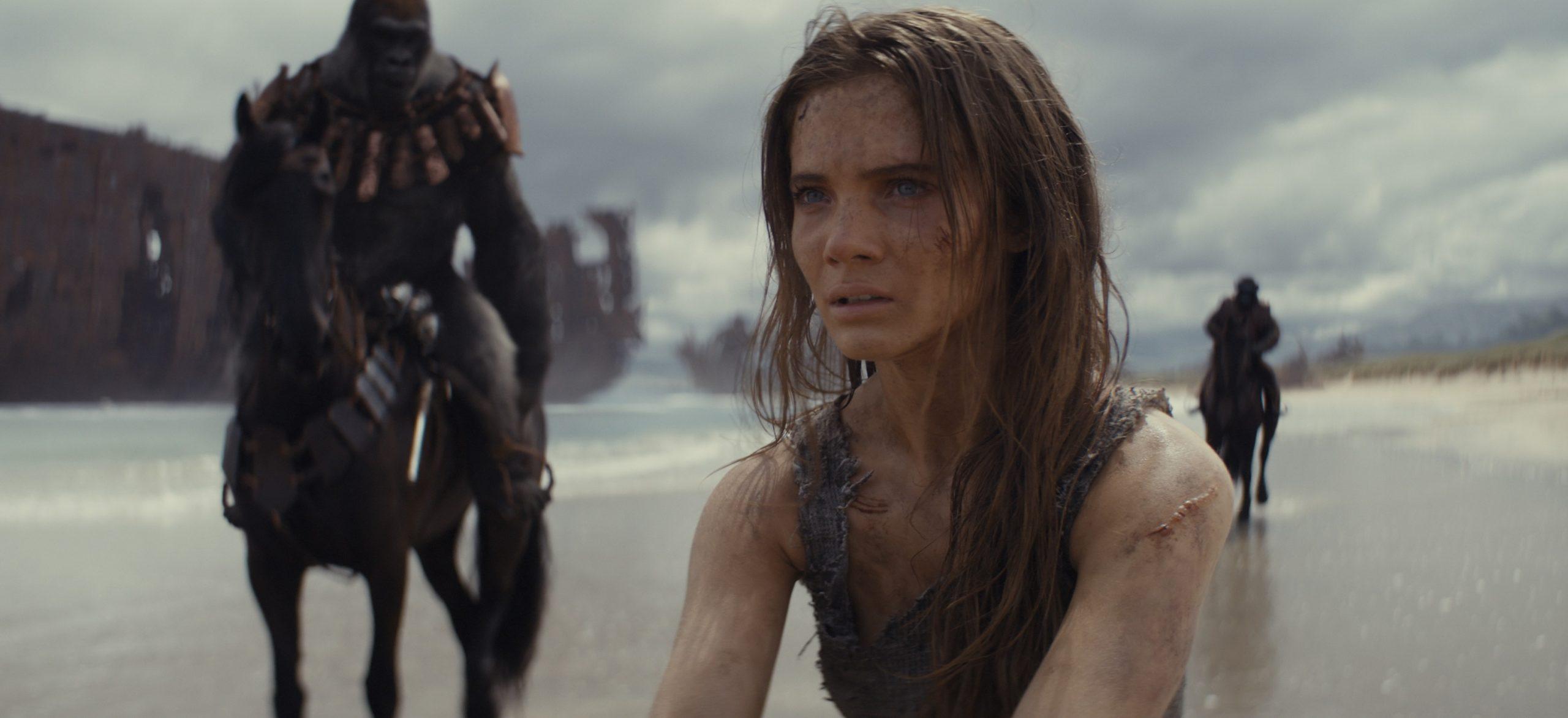
The Human Factor
Kingdom uses the human characters in some fun ways here as well. Ways I don’t want to spoil here, but definitely wasn’t expecting. The problem, however, is what’s going on with Nova and the humans left in the world doesn’t even feel secondary. More like third or fourth to the story, because the central focus is on Noa and what he’s doing for his clan.
The result makes the human element feel…muddy. The things going on with their part of the story raises a whole lot of questions that go unanswered, and the dynamic between Nova and Noa doesn’t have a clear moral compass. I mean, I once again found myself rooting for apes over humans. But unlike the previous films, it wasn’t because the apes had any clear moral high ground. Just that the humans had little fleshing out.

Again, it’s the downside of feeling like the first chapter in a larger story. It’s clear there’s a larger story to come, and there are hints at deeper themes about everyone sharing the planet and working together for the greater good. Being kept to hints and teases (exclusively in the final 15 minutes or so) leaves those themes muddled, however.
I don’t think it’s a huge problem in the long run. Kingdom is still a damn fine movie, but it’s another aspect that takes away some of the impact of the more concise story it tells.














